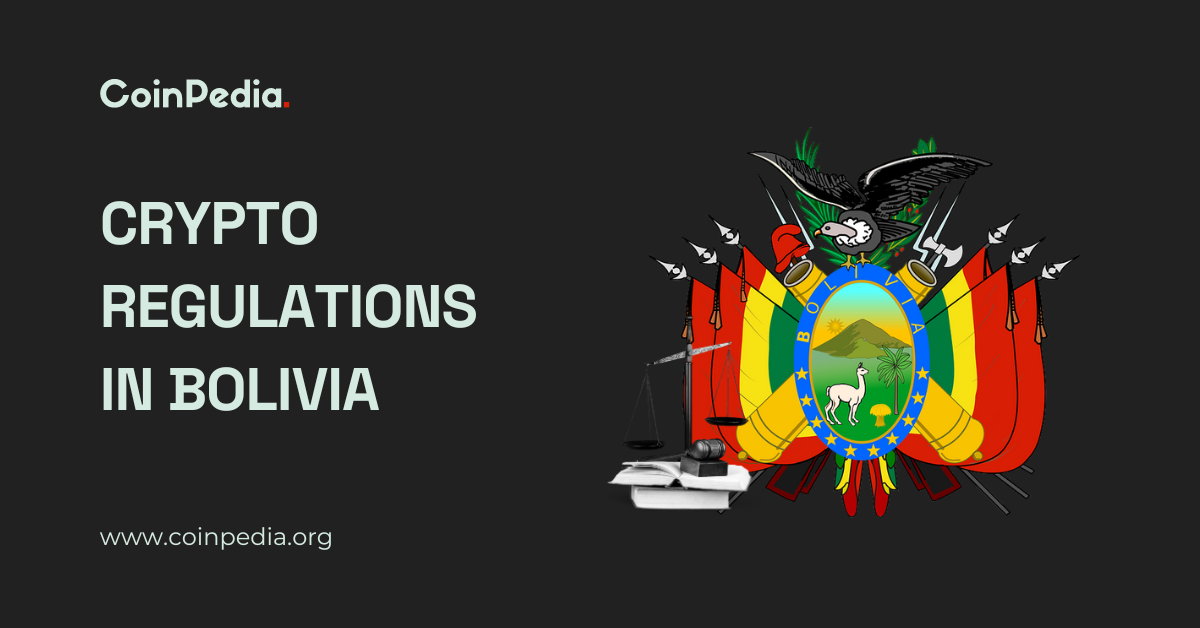Bolivia is a country located in the west-central region of South America. It is popular for its rich resources and growing economy. Mining, mineral refining and agriculture are the backbone of the Bolivian economy.
Tin, silver, lithium and copper are the prominent minerals found in the country. Although the country is the second poorest country in South America, it has made significant progress in reducing poverty and boosting its gross domestic product. Thanks to its core sectors. Some recent developments indicate that the country is preparing to modernize its economy.
The Central Bank of Bolivia’s announcement about listing its decade-long ban on cryptocurrencies is a clear example. The announcement will certainly be a turning point in the country’s economic growth trajectory. The move will open new avenues for economic growth and innovation in the country.
1. Crypto Regulations in Bolivia: A General Overview
This year, Bolivia, a South American country, took a significant step: it wholeheartedly embraced the cryptocurrency sector. Last month, the country’s central bank, the Central Bank of Bolivia, lifted its decade-long ban on cryptocurrencies for payments.
Does this action mark the country’s shift to a pro-crypto nation? We can only say that this is just the beginning. To become a complete pro-crypto nation, it has a long way to go. The new developments enable banks to handle crypto transactions. But cryptocurrencies are still not recognized as legal tender. This means that you cannot use cryptos to pay for everyday items.
Businesses are not required to accept digital currencies, but people are free to trade and transact with them. Interestingly, the Central Bank of Bolivia has introduced an Economic and Financial Education Plan, which aims to educate citizens about cryptocurrencies. This action exposes the government’s lack of confidence in its ability to fully open the possibilities of the digital space to its population.
Are they still confused? It looks like this! The Central Bank has done everything to ensure safety. The move was made after due consultation with the Financial System Supervisory Authority and the Financial Investigation Unit.
2. Why did Bolivia lift its Crypto Ban?
Bolivia lifted its decade-old crypto ban mainly for economic reasons. The country currently relies heavily on the US dollar, which has weakened its economy, which is experiencing a difficult economic situation.
Gas is a major source of foreign exchange for the country. Recently, its production has seen a sharp decline due to lack of investment. This led to the emergence of a dollar crisis. The Bolivian government’s decision to embrace cryptocurrencies is part of a broader trend where nations are seeking alternatives to the dollar amid economic instability.
Cryptocurrencies offer a new financial path that can reduce dependence on traditional currencies. The move is expected to positively affect the country’s international trade and likely help the country receive more remittances. These expected benefits align with the country’s targets to reduce its dependence on the US dollar.
3. Crypto Regulations in Bolivia: What’s New
June 26, 2024: Bolivia’s central bank lifted its ban on cryptocurrency payments, allowing financial entities to use digital assets. With the move, the economically unstable government aims to solve problems that contribute to its instability. Interestingly, the country’s strategy aligns well with that of its peers in the Latin American region, which is suffering from a similar economic crisis.
4. Crypto tax framework in Bolivia explained
There is no specific crypto tax framework in Bolivia. In the future, the country can either establish a tax framework for digital assets or revamp the existing one to accommodate the digital asset sector.
Currently, Bolivia only taxes local income. Foreign earnings, including investments, are not taxed.
Corporations pay around 25% on income earned in the country, with high rates for the mining, banking and insurance sectors. Capital gains are also taxed at the corporate rate.
Residents pay 13% on local income, but capital gains are not taxed. The country’s gift and inheritance tax varies from 1% to 20%, depending on the recipient’s relationship. Wealth of more than BOB 30 million, including foreign assets, is taxed between 1.4% and 2.4%.
Currently, crypto profits for corporations are taxed as capital gains at the corporate rate of 25%. For residents, cryptocurrency gains are not taxed as capital gains for individuals are exempt from tax under the existing tax framework.
5. Timeline of Crypto Regulation Evolution in Bolivia
2024: The Central Bank of Bolivia officially lifted the decade-long ban on cryptocurrencies. The move aims to modernize the financial system and stimulate the Bolivian economy.
2023: A congresswoman proposed a bill to lift the ban on cryptocurrencies. The proposal has sparked a debate about its potential benefits and risks.
2021: The Central Bank of Bolivia reiterated its position through a press release. The release highlights the ban on cryptocurrencies within the national payment system.
2020: The Central Bank of Bolivia issued Resolution No. 144 issued. This resolution strengthened the ban and prohibited financial entities from using, commercializing or negotiating digital currencies.
2014: Bolivia banned the use of cryptocurrencies, fearing tax evasion and monetary instability.
6. Crypto Regulation Evolution in Bolivia: The Political Background
The Bolivian government’s decision to lift the crypto ban is seen as a reflection of the Bolivian political regime’s pro-crypto stance. President Luis Arce, an economist, recently emphasized the benefits of cryptocurrencies. His government sees the lifting of the ban as the strategy to overcome its economic instability, which has recently been exacerbated by the country’s extreme dependence on the US dollar. Arce, president since 2020, is a member of the Movement for Socialism. He was a former finance minister. The latest move related to the cryptocurrency sector expresses his regime’s focus on economic innovation and stability.
End note
The latest developments in Bolivia related to the cryptocurrency sector, particularly the lifting of the crypto ban in the country, are in line with a broader trend in Latin America, where countries are exploring digital currencies to combat economic challenges. The country is paving the way for future economic stability and innovation by allowing banks to handle crypto transactions.
This move underscores the region’s growing confidence in the crypto sector. How the launch was carried out indicates that the Bolivian authorities are very keen to ensure that people are well aware of the risks associated with the crypto sector. Soon the country may develop certain regulations to ensure safety and avoid abuse of the lifting of the ban.
Also Read: Crypto Regulations in Canada: Key Updates for 2024
Disclaimer for Uncirculars, with a Touch of Personality:
While we love diving into the exciting world of crypto here at Uncirculars, remember that this post, and all our content, is purely for your information and exploration. Think of it as your crypto compass, pointing you in the right direction to do your own research and make informed decisions.
No legal, tax, investment, or financial advice should be inferred from these pixels. We’re not fortune tellers or stockbrokers, just passionate crypto enthusiasts sharing our knowledge.
And just like that rollercoaster ride in your favorite DeFi protocol, past performance isn’t a guarantee of future thrills. The value of crypto assets can be as unpredictable as a moon landing, so buckle up and do your due diligence before taking the plunge.
Ultimately, any crypto adventure you embark on is yours alone. We’re just happy to be your crypto companion, cheering you on from the sidelines (and maybe sharing some snacks along the way). So research, explore, and remember, with a little knowledge and a lot of curiosity, you can navigate the crypto cosmos like a pro!
UnCirculars – Cutting through the noise, delivering unbiased crypto news







